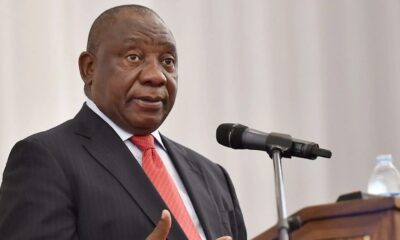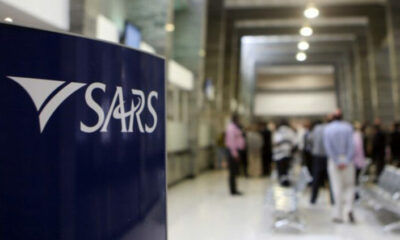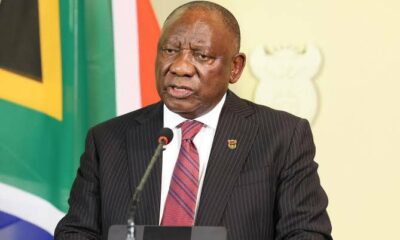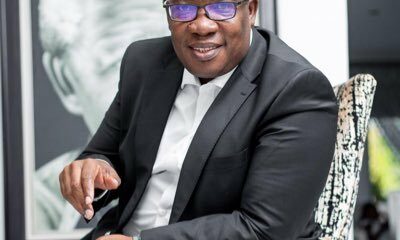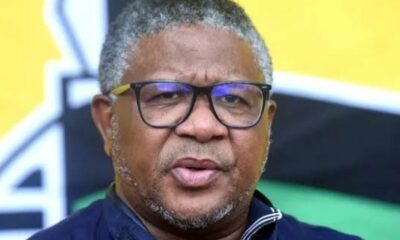News
Malusi Gigaba to Surrender to Police in Ongoing Transnet Corruption Probe

Malusi Gigaba faces the music in Transnet corruption case
Former Public Enterprises Minister Malusi Gigaba is expected to hand himself over to the police in connection with the multi-billion-rand Transnet corruption scandal, marking a major development in South Africa’s long-running state capture clean-up.
The move comes as the National Prosecuting Authority (NPA) intensifies efforts to hold high-profile political figures accountable for their alleged roles in the looting of state-owned enterprises.
Gigaba, who led the Department of Public Enterprises from 2010 to 2014, is being linked to irregular contracts and payments that allegedly drained Transnet of billions, much of it connected to deals influenced by the controversial Gupta family.
Billions lost, trust eroded
At the heart of the investigation lies the R54 billion locomotive deal, one of the largest and most tainted transactions in South African history. The deal, according to testimony at the Zondo Commission of Inquiry, was marred by inflated prices, manipulated tender processes, and kickbacks that benefited Gupta-linked companies.
Several top executives, including former Transnet CEO Brian Molefe and ex-CFO Anoj Singh have already been charged with fraud and corruption. Gigaba, who oversaw Transnet’s operations during a key period in the alleged capture of the entity, now finds himself next in line.
While the details of his specific charges have not yet been made public, sources close to the case say they are tied to contracts awarded during his tenure as minister.
Gigaba maintains his innocence
Gigaba has consistently denied any wrongdoing. In previous interviews, he described the allegations as “politically motivated”, claiming that he has become a target in the broader narrative of state capture.
“I’ve said it before, I did not benefit from the Guptas or anyone else,” he once told reporters, maintaining that his decisions as minister were above board and aligned with government policy.
Still, his name has long been associated with the era of state capture, a period that saw South Africa’s major public institutions, from Transnet to Eskom, fall under the influence of politically connected business figures.
The state capture reckoning continues
The NPA’s pursuit of Gigaba is part of a wider effort to deliver long-promised accountability following the Zondo Commission’s findings. The Commission’s final report, released in 2022, painted a damning picture of how billions were siphoned off through corrupt procurement deals, with political interference enabling the rot.
Since then, a number of former executives and board members have been charged or arrested. Yet for many South Africans, progress has felt painstakingly slow.
“This case is a test of whether the NPA can truly take on powerful political figures, not just middlemen,” says political analyst Dr. Sam Maseko. “If Gigaba is formally charged, it will signal that the clean-up is finally reaching the higher echelons of power.”
Public reaction: Cautious optimism
Online, South Africans have responded to the news with a mix of frustration and hope. Some users on X (formerly Twitter) called the move “long overdue,” while others warned that high-profile prosecutions often fizzle out before reaching conviction.
One post read, “We’ve heard this before, arrests, bail, delays. We need convictions, not press releases.” Another added, “If Gigaba is innocent, let the courts clear his name. If he’s guilty, let justice finally be done.”
The sentiment reflects a broader national mood, a blend of skepticism and fatigue after years of corruption scandals that have crippled public confidence.
A defining moment for accountability
While Gigaba’s surrender to the police marks just another step in a complex legal process, it also carries deep symbolic weight. It reinforces that no political career, however prominent, is immune from scrutiny.
For South Africans still reeling from the social and economic fallout of state capture, it’s a reminder that the slow grind of justice, though frustrating, may yet yield results.
As one Westdene resident put it in a radio call-in: “We’re not celebrating anyone’s downfall, we just want the truth, once and for all.”
{Source: IOL}
Follow Joburg ETC on Facebook, Twitter , TikTok and Instagram
For more News in Johannesburg, visit joburgetc.com

